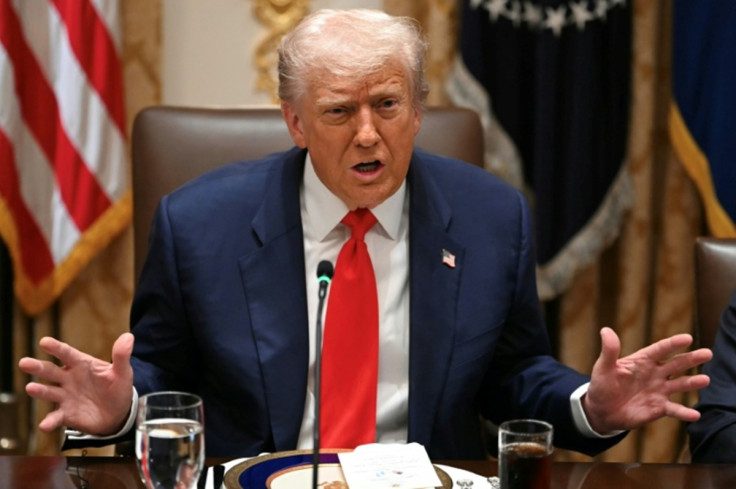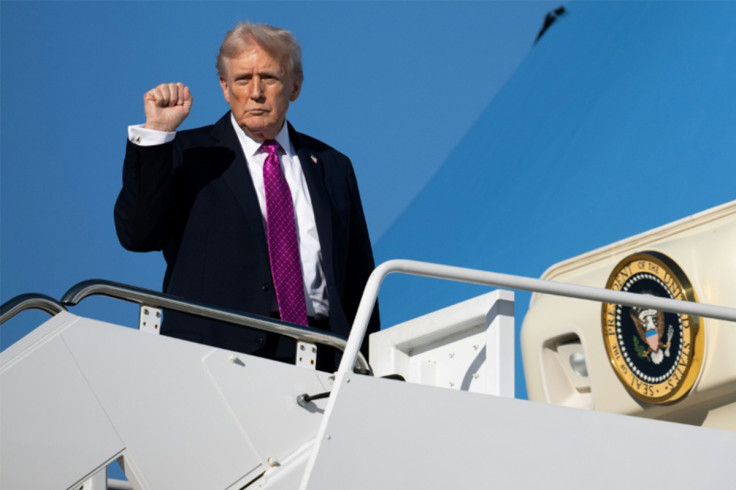'He Wants a Nobel Peace Prize?': Donald Trump Slammed For Ordering Pentagon 'Possible Action' in Nigeria
Trump's Truth Social post threatens US aid cuts and 'guns-a-blazing' intervention as Defence Secretary echoes readiness on X.

Donald Trump's abrupt order to the Pentagon to 'prepare for possible action' against Nigeria catapulted US–Nigeria ties into crisis on 1 November 2025, provoking swift rebuttals from Abuja and alarm among diplomats and security experts.
Trump posted the threat on his Truth Social platform, saying the United States could cut off all aid and 'may very well go into that now disgraced country, 'guns-a-blazing,' to completely wipe out the Islamic terrorists who are committing these horrible atrocities.'
The message explicitly instructed what his administration calls the 'Department of War' to map out contingency plans.
A Presidential Ultimatum With Few Details
Trump's message supplied vivid language but scant evidence; he did not cite new intelligence or a specific trigger for military action.
His claim came a day after his administration re-added Nigeria to a US 'Country of Particular Concern' list for alleged violations of religious freedom, a designation that carries diplomatic consequences but not an automatic military threshold.
Analysts noted that while violence has ravaged parts of Nigeria for years, the patterns are complex, involving Islamist insurgents, communal clashes, and criminal gangs, and that victims include both Christians and Muslims.
The White House did not immediately provide operational details such as rules of engagement, legal rationale under international law, or the scope of forces envisaged. US networks and correspondents travelling with the president broadcast the Truth Social post and summarised his words, prompting follow-up questioning in newsrooms but little in the way of documentary proof beyond the social-media assertion.
Abuja's Rejection and Regional Stakes
Nigeria's presidency promptly rejected the portrayal of the country as uniquely hostile to Christians. President Bola Ahmed Tinubu said the characterisation 'does not reflect our national reality' and stressed constitutional commitments to freedom of religion. Abuja's foreign ministry reiterated a desire for cooperation against extremist groups while defending Nigerian sovereignty.
Nigeria, Africa's most populous nation, faces a mosaic of security challenges: the Boko Haram insurgency in the north, farmer–herder violence across the Middle Belt, separatist tensions in the south-east, and criminal networks in the Niger Delta.
International and Nigerian human-rights organisations caution that simplistic narratives, attributing all violence to an orchestrated campaign of religious cleansing, risk misdirecting policy and could inflame sectarian tensions. Several reputable sources emphasise that Muslims comprise a very large share of victims in many conflict zones.
Regional governments and African Union officials will be watching closely: any US kinetic action on Nigerian soil would raise thorny questions about sovereignty, coalition building and the potential for escalation.
Analysts warned that even limited strikes could produce unintended consequences: reprisals, displacement, and a spike in anti-Western sentiment among groups already hostile to foreign intervention.
Legal and Military Realities
Military planners and lawyers point out two immediate constraints: first, any US offensive on foreign soil typically requires either an invitation from the host government or a clear mandate under the US constitutional war powers and international law; second, logistics and intelligence for counter-insurgency operations are complex and time-consuming.

Deploying forces 'fast, vicious and sweet,' as the president wrote, would demand precise targeting intelligence and multinational cooperation to avoid civilian harm and diplomatic fallout.
Humanitarian actors warned that talk of military action could exacerbate the plight of civilians already displaced by violence, impede relief access, and jeopardise fragile peace processes.
Nigerian civil-society leaders urged cooler heads and emphasised that responses should prioritise protection, rule of law, and targeted counter-terrorism co-operation, not unilateral strikes that risk civilian casualties and wider destabilisation.
'Only time will tell whether words become action,' a security analyst commented. 'But the stakes for millions of Nigerians are already being reshaped by a single social-media post.'
© Copyright IBTimes 2025. All rights reserved.





















